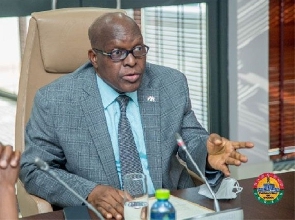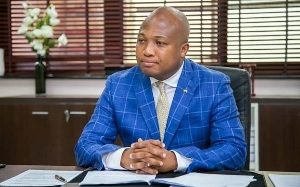In recent times, Ghana has been a topic of discussion in global news for its proposed bill that seeks to make homosexuality illegal. While the president of Ghana, Nana Akufo-Addo, appears to be avoiding taking a clear stance on the matter, the Speaker of Parliament, Alban Bagbin, has shown true leadership by taking a firm stance on the issue.
The proposed bill seeks to make homosexuality illegal and criminalize anyone who identifies as lesbian, gay, bisexual, or transgender (LGBT) while at the same time protecting them from being victims of assault at the hands of a section of the general public.
The bill as expected has caused an uproar among human rights advocates, who argue that the proposed law is a violation of the fundamental human rights of the LGBT community.
Those who support the bill have also argued that rights are based on the collective agreement of the people and hence something declared illegal by law cannot be deemed to be the right of another. In essence, there are limits to rights and every society reserves the right and power to define the boundaries.
The President's response to the issue has been lukewarm, and he appears to be avoiding taking a clear stance on the matter. In doing so, he seems to be trying to avoid any potential backlash from either side of the debate.
This has led to condemnation for the people of Ghana, with many accusing him of being complicit in the ever-increasing pressure on Ghana to bow to Western demands.
In contrast, the Speaker of Parliament, Alban Bagbin, has taken a clear and firm stance on the issue. He has made it clear that the proposed bill represents Ghana's culture identity and religious beliefs and that he ensures that clear guidelines are provided through parliament.
The Speaker's stance on the matter is commendable, it shows true leadership at a time when the Ghanaian people need a voice of influence on a matter threatening he sanctity of our values as a society.
Recently, the Speaker visited the British parliament, where he defended the Ghanaian government's stance on the matter. He emphasised that the Ghanaian culture and beliefs must be defended, but he also acknowledged that the law will protect the LGBT community against physical attack from persons who take the law into their hands and dish out punishment to persons found to engage in their activities.
He was emphatic that the Parliament of Ghana will not be pressured to stop the passage of the LGBT bill because it has the approval of the people and only that counts.
The Speaker's approach to the issue is one that the President of Ghana should emulate. It is a clear and principled stance that recognizes the importance of protecting Ghana's cultural values while also acknowledging the human rights of all Ghanaians, including the LGBT community.
The contrasting responses of the President and the Speaker of Parliament on the proposed bill that seeks to make homosexuality illegal in Ghana highlight the importance of leadership in times of crisis.
While the President's lukewarm response has drawn condemnation, the Speaker's firm stance on the issue has earned him praise and admiration from the good people of Ghana and the continent at large.
In conclusion, when Nana stepped aside and decided to play neutral on the issue, Bagbin stepped in to ensure that there is no leadership vacuum.
The speaker's leadership at this time is a beacon of hope for the Ghanaian people, and it shows that there are still leaders who are willing to stand up for what is right, even in the face of opposition.
Opinions of Tuesday, 2 May 2023
Columnist: Isaac Kyei Andoh
Nana Addo's lukewarm attitude towards LGBTQR+ contrasted by Bagbin's boldness
Entertainment


















